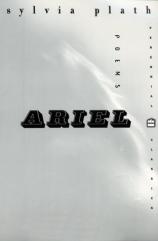Reading Group Guide
Discussion Questions
Ariel

1. In what ways do the Ariel poems speak directly to conditions and qualities of life in the late 1990s?
2. What images of the feminine appear in these poems? With what women from history, literature, religion, and myth do the speakers in these poems compare or contrast themselves? Do you agree with Robert Lowell's statement that, in these poems, "almost everything we customarily think of as feminine is turned on its head"?
3. What instances can you identify in the poems of the powerful, frequently destructive, devouring female or female spirit and of female embodiments of power and wisdom? In what ways might these be related?
4. To what extent do instances and images of disintegration, illness, and fragmentation define the basic vision of these poems and the conditions of life expressed in them?
5. In one of his "Birthday Letters" addressed to Plath, Ted Hughes writes, "Red was your color. /...[Red] Was what you wrapped around you." How does Plath use the color red in these poems? Does any other color attain a comparable importance?
6. In what guises and circumstances does death appear in these poems? Do any of the poems counter death and dying with intimations or hopes of resurrection, rebirth, or renewal?
7. What instances do you find of physical, emotional, and mental violence and destructiveness, including self-destructiveness? Are there equivalent instances of tenderness and nurturing?
8. How does Plath characterize "the Father" in "Daddy" and other poems? Do you agree with Ted Hughes when he writes, in The Birthday Letters, that "a god / That was not your [Plath's] father / Was a false god."
9. Are the numerous allusions to Nazi brutality and the Holocaust, in "Lady Lazarus" and other poems, justified? What is their purpose?
10. What characterizes many of the poems' natural settings and elements drawn from the natural world? Do qualities and conditions of nature invoked contrast or accord with the poems' primary themes?
11. Is there a single poem in Ariel that you think is more representative than any other poem of Plath's art and poetic voice? In what ways does this poem seem representative?
Ariel
- Publication Date: February 3, 1999
- Paperback: 128 pages
- Publisher: Harper Perennial Modern Classics
- ISBN-10: 0060931728
- ISBN-13: 9780060931728








